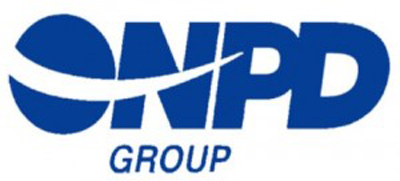vatornews消息:观察家质疑NPD八月游戏市场调查结果
据悉,美国调查机构NPD日前公布的一项报告表明,今年八月份游戏市场销售下降了10%,但有观察家认为,该报告存在两大疑点,其调查结果有待推敲。
NPD该调查报告目前尚未在网上公布,但笔者已有幸浏览了一番,认为判断该报告的结论是否令人信服,就不能避开两大问题:一、该报告的销售调查数据究竟是否准确?二、该报告是否真有必要一一对照其他月份的销售情况下此结论?只要回答了这两个问题,NPD的调查结论是否可靠,答案自然揭晓。
1、该报告的销售调查数据究竟是否准确?
首先,这份报告的调查数据并不包含在线游戏订购、出租、手机游戏、社交游戏等分类项目。乍一看,这些信息不全似乎也没啥大不了,但实际上,这些项目的市场销售额的确不容小觑。要知道在2009年,仅美国用户就为大型多人在线游戏创收38亿美元,而且这还只是游戏订购上的交易情况。至于手机游戏方面,我们就只以Gameloft这家公司为例,该公司仅手机游戏一项就可从应用商店卷走2500万美元。再看单款游戏,《植物大战僵尸》在应用商店上架仅9天就创收100万美元。很显然,这份报告冷落了一些重要的市场领域。
值得一提的是,该调查分析人员也没有将游戏产业的一些交易考虑入列,比如说像PS3和Wii游戏机与网飞公司达成的交易,因为这些交易也属于游戏营收的一个重要来源。不过,这份报告筛除游戏出租营收这一项倒没错,因为众所周知,游戏出租的大笔利润往往只是鼓了出租中介的腰包,游戏开发商并未直接获利。因此从严格意义上来讲,游戏出租产生的效益不能计入营收总额。
此外,这份报告的调查周期仅仅28天,即8月1号至28号这个期间,而8月29号至31号这三天却无故蒸发了,也许这三天的数据根本不值一提,但如果换个角度来看,三天相当于一个月10%的时间,那么这份报告遗漏了三天的数据确实是个不小的失误。
2、该报告是否真有必要一一对照其他月份的销售情况下此结论?
要回答这个问题,就不得不考虑游戏市场的一些变量,因为不同月份发行的游戏对该月销售额产生的影响也往往不同。比如说新游戏出炉或者广告推广等都有可能让游戏销售额骤然飙升,就好像《生化奇兵2》(Bioshock 2)这款游戏,仅在今年2月刚发行的第10天,就创下了75万件的销售量。
即便没有新游戏发行,造成市场销售大起大落的现象还有不少,比如说微软对Xbox360游戏机降价后,该产品在一周内的销售率立即达到100%。因此,对于充满变数的游戏市场来说,这种逐月对照的数据分析毫无意义。
如果各位认为本文的论据仍然不足为信,不妨听听NPD自己的说法。在去年《纽约时报》的一次采访中,NPD的一名分析师安妮塔.弗雷泽(Anita Frazier)表示,“如果按本月的调查结果来看,人们很容易误判游戏产业的大限已至,但是要知道今年比去年多了两个非常关键的影响因素……”这两个因素,就是复活节和2008年3月发行的《任天堂明星大乱斗X》(Super Smash Bros.Brawl)。《任天堂明星大乱斗X》刚上架第一周即成为美国史上最畅销的任天堂游戏,在短短一周内即创造了140万销量。
像这类市场调查,如果忽视每月变量因素,不加分析地照搬其他调查项目的操作手段,实际上已经走进了一个很大的误区,其调查结果的准确性也必然大打折扣。当然,这份报告的上述谬误也可以归咎于其他原因,比如说只进行短短的28天调查纯粹是不稳定的市场行情之下的无奈之举,或者说是出于迎合急需数据的客户需求。
如果各位还是坚持认为NPD的调查分析有理有据,笔者在此奉劝一句,NPD的调查结果并不总是板上钉钉的事实。比如去年NPD的另一项调查结果显示,2009年游戏产业总销售额约50亿美元,该调查结果却一度引发争议,这个调查项目当时由Newzoo和TNS市场研究公司共同发起,各位如有兴趣,回头可以查阅一下这份标题为《Today’s Gamers Survey》的报告。
另外,截止本文发稿前,NPD仍然没有对此事作出回应。
Recent NPD game-sales report is a bit sketchy Study shows game sales drop 10% in last month
A recent study showing declining game sales may sound disconcerting on the face of it. But a closer looks shows some flaws.
NPD’s just-released report, which is not available online, but which I was able to review, said game sales fell 10% last month.
Should you care as an entrepreneur in this space that demand may be cooling for new games you may be creating? We thought you might. So, we took a look at the study to determine how troubling it may or might not be.
We decided to take a look at two questions: First, is this research a complete and accurate look at gaming sales? Two, is it worth comparing sales reports in the gaming industry on a month-to-month basis? Once we have answered these questions, the level of importance that can be given to this study should become clear.
Let’s start with the research itself. Is this research a complete and accurate look at gaming sales?
The study does not include any data about online game subscriptions, rentals, mobile games or social games. This may, at first glance, seem to be a small issue. As it turns out, however, that is a significant amount of revenue missed by the report. Last year, US based players alone spent roughly $3.8 billion on MMORPG’s, which fall squarely into the subscription based games category. As for mobile games, if we look at the sales of just one company, Gameloft in just one venue, the app store, we see a $25 million in unreported gaming income. Single titles, like this Februaries Plant vs. Zombies generated over $1 million in revenue in its first 9 days on the app store. Clearly, some significant markets are missing from this study.
It is also worth wondering if this analysis takes into account the recent deals that the PS3 and Wii have made with Netflix, which would represent another stream of ignored revenue. Choosing to exclude rental revenue however may be a fair move, because every rental puts money in the rental agents pocket, not the game makers. When a gamer walks into a Blockbuster, or logs on their Gamefly account the company does not have to buy a new copy of the game to meet that demand. Its either available, or its not. These are not game sales in any way.
There is also one other little caveat to this study. It only covers a 28 day span. According to the results report from Nintendo World the study period spans on the 1st to the 28th of the month of August, which means the 29th through the 31st were not included. Three days does not sound like a long time unless you consider that is about 10% of the month being studied.
It looks as though NPD is planning to include this data in future editions of the study.
Now onto the second issue: Is it worth comparing sales reports in the gaming industry on a month-to-month basis?
In order to answer this question, we need to understand the gaming market, which varies greatly based on the titles that are being offered in any given month. A new title with any kind of fan following, or strong promotions can send sales skyrocketing. You can easily see the trend with games like Star Wars: The Force Unleashed, which sold over 5.7 million units. This year, the release of Bioshock2, a sequel to the high selling Bioshock, sold over 750,000 copies in February, after being launched on the 10th of that month.
Similar mass buying effects can be seen without a hit game in the market. When Microsoft lowered the price of the Xbox360, it saw a 100% sales jump in one weekend. With any market this variable a direct comparison does not seem to be very useful at all.
If you don’t want to take this evidence for yourself, let’s look at what NPD says about it themselves. In a 2009 interview with The New York Times, Anita Frazier, an analyst with NPD said, “While it might be tempting to jump to the conclusion that the sky is starting to fall on the video game industry, given this month’s results, it’s important to remember that two very big things are different this year than last year…” Those two factors, Easter and the March 2008 launch of Super Smash Bros.: Brawl, which according to Nintendo , “…just one week on store shelves, Super Smash Bros. Brawl for Wii has become the fastest-selling video game in Nintendo of America’s history”, the sales topped 1.4 million games in that first week alone.
Research studies of this type, where a correlation is assumed on the face because of an eternal variable, like the month, are often prone to issues with a type of internal validity known as Convergent Validity, which is best described as,”the degree to which the operationalization is similar to (converges on) other operationalizations that it theoretically should be similar to…” You can see the issue with a market this variable.
Given this acknowledgement of the limitations of this span of research it may simply be that NPD is doing the best that they can with a volatile market and customers who need data in a timely manner.
Finally, it is worth pointing out that even if you decide that the study and its comparisons are valid, you should know that the NPD’s reported numbers are not iron clad. Their 2009 year end gaming sales study was in serious conflict, about $5 billion, with a study conducted by Newzoo and TNS, called the Today’s Gamers Survey.
NPD did not respond to immediate request for comment.(source:vatornews)
声明:本文中文为游戏邦翻译,英文原文采用vatornews,转载请保留版权信息,谢谢!








































 闽公网安备35020302001549号
闽公网安备35020302001549号